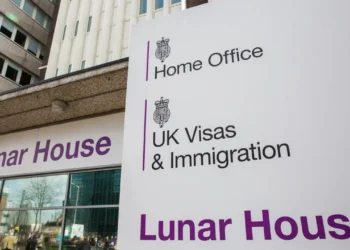The practice of visa shopping is gaining popularity among Schengen visa applicants due to lengthy appointment waiting times and the appeal of convenience. However, it’s crucial to emphasize that visa shopping is unlawful and can result in severe consequences.
As Schengen visa applicants contend with extensive wait times for appointments, an increasing number are turning to “visa shopping.” This practice involves applying for a Schengen visa at an embassy different from their intended destination.
The Escalating Popularity of Visa Shopping: Protracted wait times for Schengen visa appointments have left numerous applicants feeling frustrated and searching for alternatives. “Visa shopping” entails applying at embassies where the visa process is quicker and more convenient, even if it’s not their primary destination.
Motivations Behind Visa Shopping: Several key factors drive individuals to opt for visa shopping:
- Avoiding Lengthy Appointment Wait Times: Some Schengen embassies experience exceedingly long waiting periods, particularly during peak travel seasons. Visa shoppers may choose to apply at embassies with shorter waiting times, even if they have no intention of visiting that particular country.
- Improving Visa Approval Odds: Different Schengen countries have varying visa requirements. Some are more stringent than others. Visa shoppers might select countries with more lenient criteria to enhance their chances of approval.
- Extending Visa Duration: Certain Schengen countries issue visas with longer validity periods than others. Visa shoppers may opt to apply for a visa from a country that provides lengthier visa durations.
The Risks Associated with Visa Shopping:
It’s imperative to recognize that visa shopping is against the law and carries substantial risks. Individuals caught in the act of visa shopping may face:
- Visa Denial: You may be denied a visa.
- Entry Rejection: You could be refused entry into the Schengen Area.
- Blacklisting: In some instances, individuals might be prohibited from entering the Schengen Area for several years.
Furthermore, visa shopping can prove to be a wasteful expenditure of time and money. If you face visa denial from one Schengen country, you’ll be required to restart the application process at another embassy, incurring additional expenses and delays.
Embassies’ Cautions:
While some applicants may be aware of the associated risks, many others remain uninformed. Several embassies have issued stern warnings against this practice:
- – The Embassy of Estonia has underscored the severe consequences for individuals engaged in visa shopping, including visa refusal and potential deportation.
- – The Embassy of Switzerland in India and Bhutan has issued a strong advisory, urging all applicants to apply for a visa in the country they plan to visit or stay in for the longest duration. Violators may face entry denial upon arrival in Switzerland.
Additionally, the embassy has shared measures to address limited appointment availability, including permitting applications up to six months before travel and enhancing overall processing capacity.
Alternatives to Visa Shopping:
If you are contemplating visa shopping, consider these alternative options:
Appointment in the Destination Country: Endeavor to secure an appointment at the embassy of your intended destination country, even if the waiting period is protracted. This remains the most reliable way to ensure visa acquisition.
Exploration of Countries with Shorter Wait Times: Explore the possibility of applying for a visa from a different Schengen country with more efficient waiting periods. However, it is essential to verify that you meet that country’s visa requirements.
Consider a Multiple-Entry Visa: If you plan to visit multiple Schengen countries, investigate the feasibility of obtaining a multiple-entry visa, allowing for repeated entries during the visa’s validity period.
Processing Times and Popular Schengen Destinations:
The Embassy of Switzerland has revealed that Schengen visa applications typically require no more than 13 working days for a decision. Nevertheless, despite these challenges, Schengen Visa Statistics indicate that France, Spain, and Germany received the highest number of Schengen visa applications in the previous year.
France received 1,918,515 applications, Spain received 1,197,457 applications, and Germany received 1,043,297 applications in 2022. Remarkably, these countries experienced a substantial influx of applications despite not having the lowest rejection rates.
Easiest and Most Challenging Countries for Schengen Visas
Regarding rejection rates, certain Schengen member states feature lower rates than others. In 2022, Iceland, Lithuania, and Latvia boasted the lowest visa rejection rates, making them more accessible for obtaining Schengen visas. Iceland had a rejection rate of 1.9%, Lithuania had a rate of 7.8%, and Latvia had a rate of 9.5%.
In contrast, Malta, Sweden, Belgium, and France encountered the highest rejection rates in 2022, signaling that securing a visa from these countries might prove more demanding.
In Conclusion, while visa shopping may seem like a means to circumvent extensive waiting times or enhance your visa approval prospects, it is a risky strategy laden with legal consequences. It is crucial to explore viable alternatives and fully grasp the potential risks before considering visa shopping as an option.
For any enquiries please, email our editorial team at [email protected]. If you liked this story, kindly sign up for Clariform Newsletter, a handpicked selection of stories that helps you clarify things that matter and gives you clear signals about your world, delivered directly to your inbox.
Please subscribe to our YouTube channel, and join thousands of Clariform on Facebook, Twitter and Instagram.












